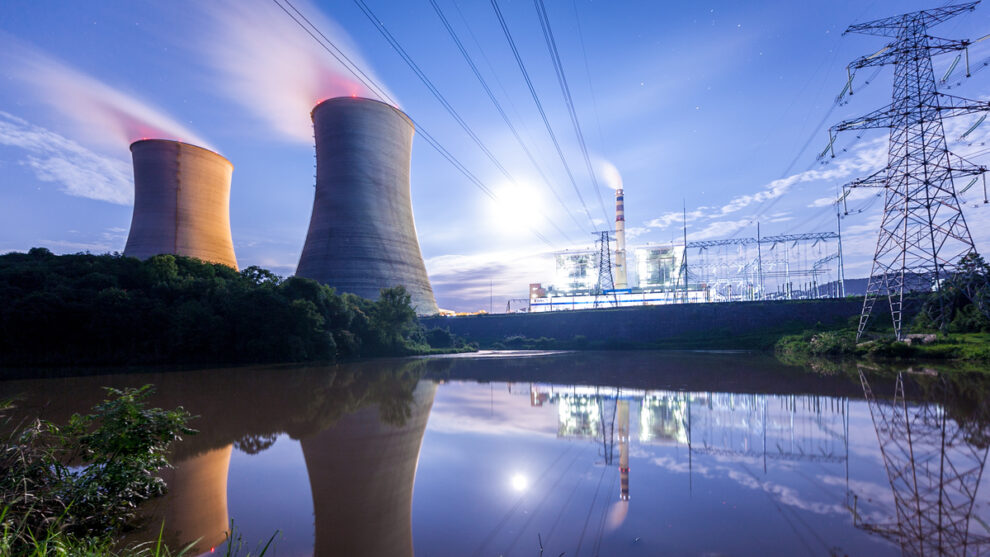
Microsoft needs a lot of electricity to power its data centers.
Microsoft (MSFT) is investing heavily in building out data centers to support the growth of its cloud computing and artificial intelligence (AI) operations. Those facilities require tremendous power, especially when used for AI. For example, AI applications like ChatGPT require 10 times the electricity to process a search query compared to a typical Google search.
That’s leading Microsoft to secure power to support its growth ambitions. It recently signed a deal to buy nuclear energy produced by Constellation Energy (CEG). It also signed a massive renewable energy deal with Brookfield Renewable (BEPC) (BEP). These agreements will help ensure Microsoft has the power it needs to thrive in the future.
Going nuclear
Microsoft recently signed a 20-year power purchase agreement (PPA) with leading nuclear energy producer Constellation Energy. The deal will help launch the Crane Clean Energy Center by restarting Three Mile Island Unit 1. The company had shut down that unit five years ago for operational and economic reasons. It will now bring it back online to supply Microsoft’s data centers with carbon-free energy for decades to come.
Constellation Energy expects the restarted nuclear-generating unit, renamed after its former CEO, to begin producing power by 2028. It will mark the country’s first-ever restart of a previously retired nuclear power plant. The company plans to invest about $1.6 billion to bring the plant back online.
It would have the capacity to generate 835 megawatts (MW) of carbon-free electricity and could operate through at least 2054. The 20-year agreement for capacity at the revamped Crane Clean Energy Center is the largest-ever PPA signed by Constellation Energy. It will supply the power company with steady income for the next two decades.
Three Mile Island Unit 1 is next to the notorious Unit 2, which shut down in 1979 after a partial meltdown. That accident, the most famous one in the country, didn’t impact Unit 1. Constellation Energy won’t restart that second unit.
Tapping into Microsoft’s need for power
Constellation Energy isn’t the only company benefiting from Microsoft’s need for power. The tech titan signed a massive collaboration agreement with Brookfield Renewable in May. The deal will see the leading global renewable energy producer deliver over 10.5 gigawatts (GW) of new renewable power capacity by 2030.
That agreement is the largest corporate PPA ever signed, nearly eight times bigger than the prior record. It provides a pathway for Brookfield to build and deliver 10.5 GW of new renewable energy capacity in the U.S. and Europe to support Microsoft’s cloud and AI expansions while helping it achieve its goal of having 100% of its power come from zero-carbon energy by 2030. It builds on their existing agreements where Brookfield is supplying Microsoft with nearly 1 GW of power capacity.
While that deal initially covers renewable energy in the U.S. and Europe, it could expand to other regions, like Asia-Pacific, India, and Latin America, where Brookfield also has a strong operating presence. Further, it will focus beyond wind and solar to include new or impactful carbon-free energy-generation technologies.
Meanwhile, Microsoft’s support for nuclear energy could also benefit Brookfield. While it doesn’t operate nuclear power facilities, it has investments in Westinghouse, a leading global nuclear services business. Westinghouse could help restart dormant nuclear power plants and build new nuclear capacity, such as small modular reactors.
Powerful growth potential
The next two decades will be an unprecedented period for electricity buildout globally to support the growth of cloud computing, AI, electric vehicles, and other demand drivers. Microsoft is ensuring it stays ahead of this curve by grabbing as much power as possible to support its growth ambitions. That’s fueling growth for Constellation Energy and Brookfield Renewable, which should expand briskly for years to come, making them great stocks to buy for those seeking to capitalize on the coming power boom.
Suzanne Frey, an executive at Alphabet, is a member of The Motley Fool’s board of directors. Matt DiLallo has positions in Alphabet, Brookfield Renewable, and Brookfield Renewable Partners. The Motley Fool has positions in and recommends Alphabet, Brookfield Renewable, Constellation Energy, and Microsoft. The Motley Fool recommends Brookfield Renewable Partners and recommends the following options: long January 2026 $395 calls on Microsoft and short January 2026 $405 calls on Microsoft. The Motley Fool has a disclosure policy.









